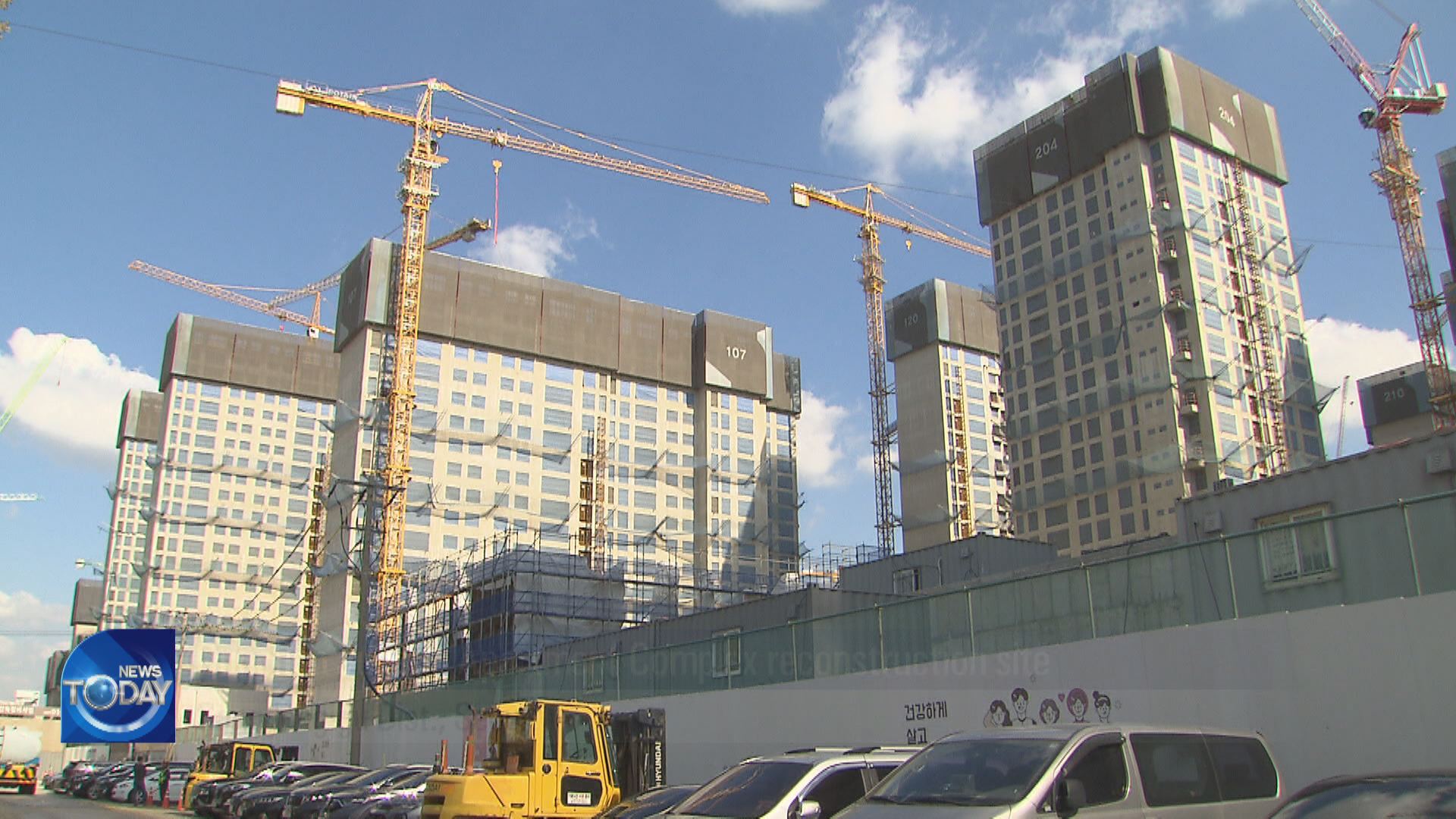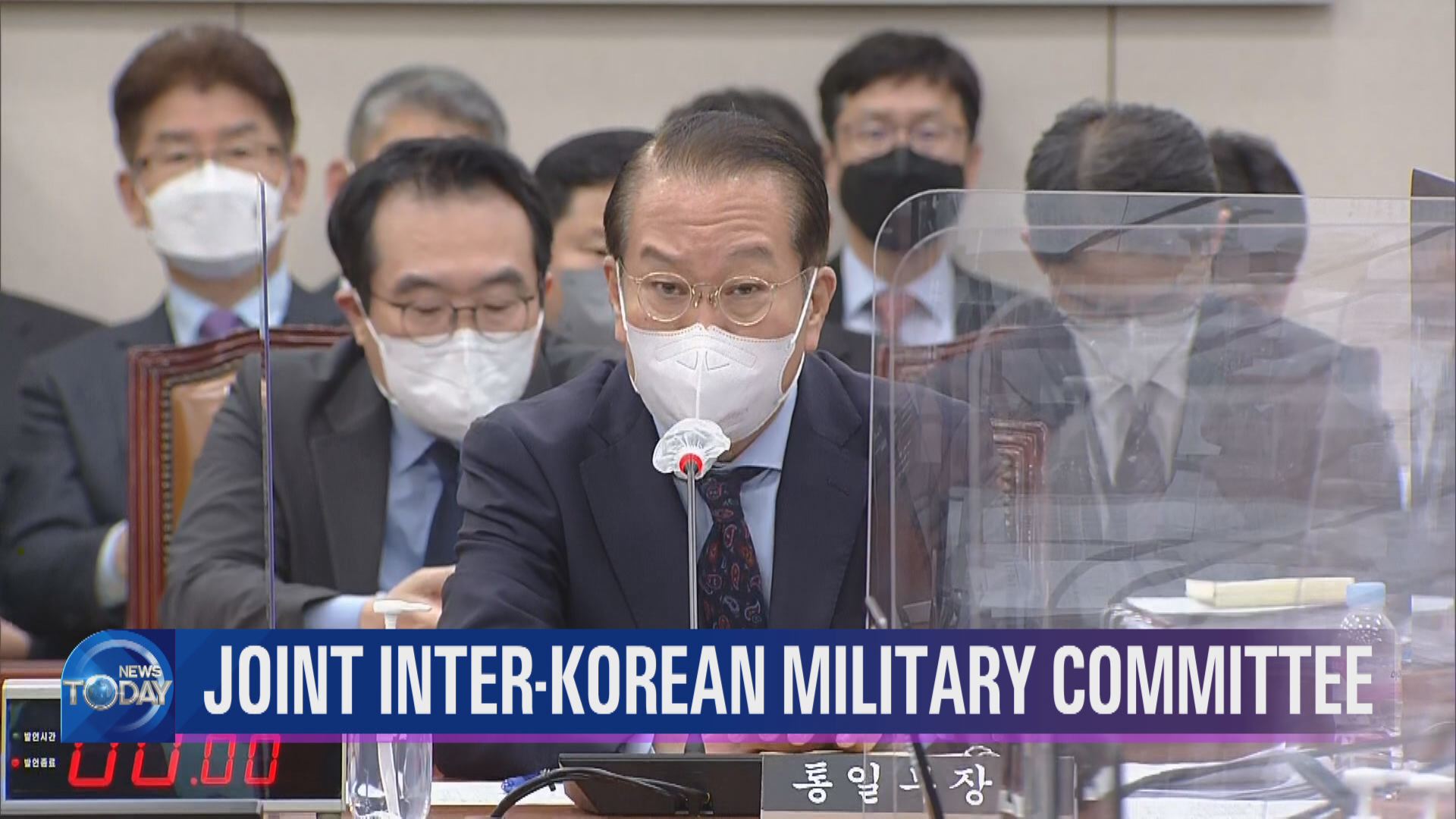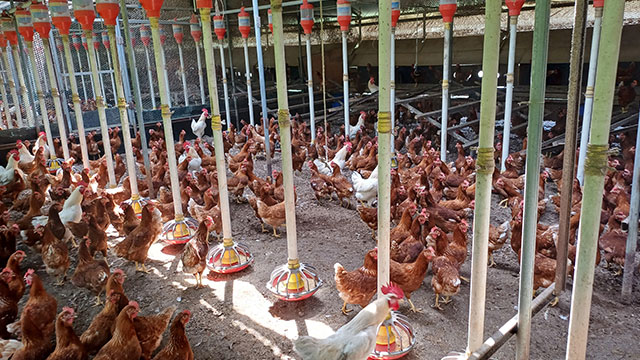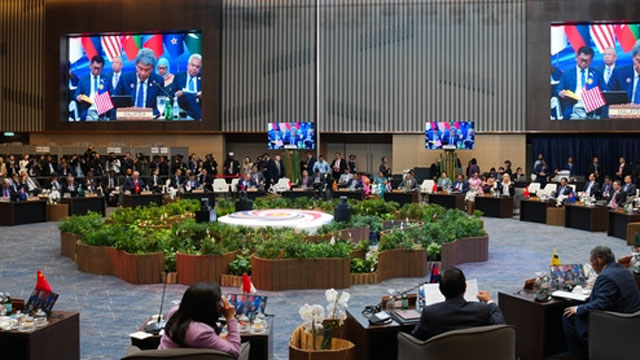CONCERNS OVER REAL ESTATE LENDING
입력 2022.10.25 (15:00)
수정 2022.10.25 (16:45)
읽어주기 기능은 크롬기반의
브라우저에서만 사용하실 수 있습니다.
[Anchor Lead]
The bond market regained its vigor on Monday following the government's emergency stabilization measures. Interest rates on government and corporate bonds plummeted for the first time in eight trading days, paving the way for capital flow. However, red flags have been raised in the real estate lending sector, regarded to be the weakest link.
[Pkg]
This is the construction site of 12,000 apartment units, the largest apartment rebuilding project to date. Its construction resumed last week after a conflict between the union representing apartment owners and the builder had been finally resolved. However, the construction cost remains an issue. The union tried to sell off bonds in a bid to secure funds, but finding investors in the frozen capital market has been a challenge. If financing is not secured, the builders who made the guarantee will have to repay the money instead. One of the builders had to borrow 500 billion won from a group affiliate in the latest string of events, including the Legoland crisis in Gangwon-do Province and soaring interest rates, which has made the short-term money market become cash-strapped. The real estate lending sector, which is already struggling with stagnation in the real estate market, could also exacerbate the financial market woes. As of June this year, real estate loans in Korea amounted to around 112 trillion won. Although the delinquency rate is still low at 0.5 percent, if the current trend continues, the situation could spiral out of control. The National Agricultural Cooperative Federation and the National Credit Union Federation of Korea have already announced plans to halt real estate loans.
[Soundbite] (Construction industry insider(VOICE MODIFIED)) : "Small and medium-sized builders may experience financing difficulties because of tough market conditions."
The government's decision to inject 50 trillion won in the bond market also includes real estate loans in a bid to prevent financing difficulties in the construction sector from spreading to the financial market.
[Soundbite] Park Sang-hyun(HI Investment and Securities) : "Judging from past experience, if savings banks also go bankrupt, the entire financial market may suffer a blow."
The real estate sector is demanding that business regulations be eased, but critics say real estate owners should blame themselves for receiving excessive loans during the real estate boom to expand their business.
The bond market regained its vigor on Monday following the government's emergency stabilization measures. Interest rates on government and corporate bonds plummeted for the first time in eight trading days, paving the way for capital flow. However, red flags have been raised in the real estate lending sector, regarded to be the weakest link.
[Pkg]
This is the construction site of 12,000 apartment units, the largest apartment rebuilding project to date. Its construction resumed last week after a conflict between the union representing apartment owners and the builder had been finally resolved. However, the construction cost remains an issue. The union tried to sell off bonds in a bid to secure funds, but finding investors in the frozen capital market has been a challenge. If financing is not secured, the builders who made the guarantee will have to repay the money instead. One of the builders had to borrow 500 billion won from a group affiliate in the latest string of events, including the Legoland crisis in Gangwon-do Province and soaring interest rates, which has made the short-term money market become cash-strapped. The real estate lending sector, which is already struggling with stagnation in the real estate market, could also exacerbate the financial market woes. As of June this year, real estate loans in Korea amounted to around 112 trillion won. Although the delinquency rate is still low at 0.5 percent, if the current trend continues, the situation could spiral out of control. The National Agricultural Cooperative Federation and the National Credit Union Federation of Korea have already announced plans to halt real estate loans.
[Soundbite] (Construction industry insider(VOICE MODIFIED)) : "Small and medium-sized builders may experience financing difficulties because of tough market conditions."
The government's decision to inject 50 trillion won in the bond market also includes real estate loans in a bid to prevent financing difficulties in the construction sector from spreading to the financial market.
[Soundbite] Park Sang-hyun(HI Investment and Securities) : "Judging from past experience, if savings banks also go bankrupt, the entire financial market may suffer a blow."
The real estate sector is demanding that business regulations be eased, but critics say real estate owners should blame themselves for receiving excessive loans during the real estate boom to expand their business.
■ 제보하기
▷ 카카오톡 : 'KBS제보' 검색, 채널 추가
▷ 전화 : 02-781-1234, 4444
▷ 이메일 : kbs1234@kbs.co.kr
▷ 유튜브, 네이버, 카카오에서도 KBS뉴스를 구독해주세요!
- CONCERNS OVER REAL ESTATE LENDING
-
- 입력 2022-10-25 15:00:50
- 수정2022-10-25 16:45:14

[Anchor Lead]
The bond market regained its vigor on Monday following the government's emergency stabilization measures. Interest rates on government and corporate bonds plummeted for the first time in eight trading days, paving the way for capital flow. However, red flags have been raised in the real estate lending sector, regarded to be the weakest link.
[Pkg]
This is the construction site of 12,000 apartment units, the largest apartment rebuilding project to date. Its construction resumed last week after a conflict between the union representing apartment owners and the builder had been finally resolved. However, the construction cost remains an issue. The union tried to sell off bonds in a bid to secure funds, but finding investors in the frozen capital market has been a challenge. If financing is not secured, the builders who made the guarantee will have to repay the money instead. One of the builders had to borrow 500 billion won from a group affiliate in the latest string of events, including the Legoland crisis in Gangwon-do Province and soaring interest rates, which has made the short-term money market become cash-strapped. The real estate lending sector, which is already struggling with stagnation in the real estate market, could also exacerbate the financial market woes. As of June this year, real estate loans in Korea amounted to around 112 trillion won. Although the delinquency rate is still low at 0.5 percent, if the current trend continues, the situation could spiral out of control. The National Agricultural Cooperative Federation and the National Credit Union Federation of Korea have already announced plans to halt real estate loans.
[Soundbite] (Construction industry insider(VOICE MODIFIED)) : "Small and medium-sized builders may experience financing difficulties because of tough market conditions."
The government's decision to inject 50 trillion won in the bond market also includes real estate loans in a bid to prevent financing difficulties in the construction sector from spreading to the financial market.
[Soundbite] Park Sang-hyun(HI Investment and Securities) : "Judging from past experience, if savings banks also go bankrupt, the entire financial market may suffer a blow."
The real estate sector is demanding that business regulations be eased, but critics say real estate owners should blame themselves for receiving excessive loans during the real estate boom to expand their business.
The bond market regained its vigor on Monday following the government's emergency stabilization measures. Interest rates on government and corporate bonds plummeted for the first time in eight trading days, paving the way for capital flow. However, red flags have been raised in the real estate lending sector, regarded to be the weakest link.
[Pkg]
This is the construction site of 12,000 apartment units, the largest apartment rebuilding project to date. Its construction resumed last week after a conflict between the union representing apartment owners and the builder had been finally resolved. However, the construction cost remains an issue. The union tried to sell off bonds in a bid to secure funds, but finding investors in the frozen capital market has been a challenge. If financing is not secured, the builders who made the guarantee will have to repay the money instead. One of the builders had to borrow 500 billion won from a group affiliate in the latest string of events, including the Legoland crisis in Gangwon-do Province and soaring interest rates, which has made the short-term money market become cash-strapped. The real estate lending sector, which is already struggling with stagnation in the real estate market, could also exacerbate the financial market woes. As of June this year, real estate loans in Korea amounted to around 112 trillion won. Although the delinquency rate is still low at 0.5 percent, if the current trend continues, the situation could spiral out of control. The National Agricultural Cooperative Federation and the National Credit Union Federation of Korea have already announced plans to halt real estate loans.
[Soundbite] (Construction industry insider(VOICE MODIFIED)) : "Small and medium-sized builders may experience financing difficulties because of tough market conditions."
The government's decision to inject 50 trillion won in the bond market also includes real estate loans in a bid to prevent financing difficulties in the construction sector from spreading to the financial market.
[Soundbite] Park Sang-hyun(HI Investment and Securities) : "Judging from past experience, if savings banks also go bankrupt, the entire financial market may suffer a blow."
The real estate sector is demanding that business regulations be eased, but critics say real estate owners should blame themselves for receiving excessive loans during the real estate boom to expand their business.
이 기사가 좋으셨다면
-
좋아요
0
-
응원해요
0
-
후속 원해요
0

















이 기사에 대한 의견을 남겨주세요.